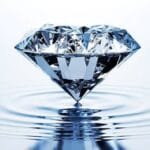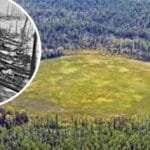Did you know that almost three-quarters of our Earth is covered by water? That’s a lot of blue! For many, this underwater world is a call to adventure. Scuba diving is super popular, with millions exploring beneath the waves each year. They discover amazing things and take breathtaking photos. But here’s the catch: our planet’s waters can also be incredibly dangerous. Much of it is unexplored, deep, dark, and freezing. It’s home to creatures that seem like they’re from nightmares. Even shallow waters can hide swift currents, hidden caves, or boiling hot spots.
Sadly, not every dive ends with happy memories. Around 100 to 200 divers lose their lives each year. Some dive spots are known for their dangers, while others hold secret lethal threats. Get ready to explore 10 of the deadliest places on Earth to scuba dive, where beauty meets extreme peril.
10 Chuuk Lagoon
Chuuk Lagoon, once called Truk Atoll, is a cluster of islands in Micronesia. At first glance, it’s a paradise for divers. The water is crystal clear and bright blue. It’s teeming with colorful fish and other sea life. Plus, there’s an entire fleet of sunken ships from World War II to explore. Sounds amazing, right? But there’s a huge, hidden danger. This lagoon is littered with thousands of unexploded bombs, grenades, mines, depth charges, and torpedoes.
During World War II, Chuuk Lagoon was Japan’s main naval base. In 1944, the U.S. Navy attacked and destroyed it. Experts call it “the biggest graveyard of ships in the world.” What makes Chuuk Lagoon especially risky is that much of its dangerous cargo is still undiscovered. Several large ships, packed with explosives, are still missing. The same goes for lost aircraft and even tanks. Diving here means swimming among live, historical weapons.
9 Citarum River
The Citarum River in Indonesia is one of the longest rivers in the country. It’s probably not a place many scuba divers would choose, and for good reason. Many people consider the Citarum the most polluted river on the planet. Imagine trying to dive in water that’s more trash than liquid.
Shockingly, over 2,000 factories dump their waste directly into this river. That’s about 20,000 tons of waste every single day. In many parts of the Citarum, you can’t even see the water. It’s completely covered by a thick layer of plastic bottles, styrofoam, and other garbage that won’t break down. Even where the water looks clearer, it’s incredibly deadly. It’s filled with toxic chemicals like mercury, lead, and arsenic. The Citarum River is a tragic example of extreme pollution, making it lethal for any diver.
8 Bolton Strid
The River Wharfe winds its way for over 60 miles through the beautiful countryside of Yorkshire, England. Most of it looks calm, pretty, and peaceful. But don’t let its charming surface fool you. Beneath the gentle appearance, parts of this river are incredibly dangerous. It’s so dangerous that it’s known as “one of the deadliest bodies of water in the world.” It’s said that anyone who falls into certain sections has a “100 percent mortality rate.”
The deadliest part is called the Bolton Strid. Here, the river, which is normally about 30 feet wide, suddenly squeezes into a narrow gap just six feet across. This sudden narrowing makes the water speed up immensely. The current becomes powerful, pressure increases, and whirlpools form. To make things worse, these narrow, fast-flowing sections can be tens of meters deep. The water at the bottom is incredibly cold, fast, and chaotic. Countless people have lost their lives in the Strid’s treacherous waters.
7 Lake Karachay
Here’s some news about our number seven spot: you can’t dive in Lake Karachay anymore. It was recently filled in with concrete. But for about 65 years, this Russian lake might have been the single most dangerous body of water on Earth. Even filling it with concrete hasn’t completely removed its deadly threat.
Between 1951 and 1957, the Soviet Union used Lake Karachay as a dumping site for nuclear waste. Then, a disaster called the Kyshtym disaster added even more contamination. The radiation levels around the lake became almost as high as those near Chernobyl. By the 1990s, the radiation in Lake Karachay was so intense it could kill a person within an hour. Even now, with the lake filled in, the area is still highly radioactive and completely off-limits to everyone.
6 The Eagle’s Nest
Deep in a remote part of Florida, there’s a place called The Eagle’s Nest. It’s a system of underwater caves that often appears on lists of deadly dive sites, and for very good reasons. From the surface, it looks like a small, ordinary pond. But this calm appearance hides one of the deepest, darkest, and deadliest scuba locations in the world.
Divers who enter the pond soon discover its true nature. The water drops straight down, more than 300 feet, into pitch-black darkness. At such depths, divers face a high risk of something called nitrogen narcosis, or depth intoxication, which can confuse their thinking. As if that’s not enough, they then have to navigate through twisting, narrow passages. At least ten experienced, professional divers have died exploring The Eagle’s Nest.
5 Battery Acid Bath
This entry isn’t just one place, but thousands of them. What do they all have in common? Water that’s as acidic as, or even more acidic than, battery acid. Imagine diving into that! These caustic bodies of water can form in several ways. One common cause is drainage from nearby mines. Coal mines are often the biggest culprits. They can accidentally, or sometimes purposely, release acidic metals and sulfides into rivers and lakes.
Strangely, this pollution can sometimes create beautiful sights. The acidic water can turn rivers deep red, orange, yellow, or green. But diving in these waters is like signing a death warrant. Scientists found water in one mine in Iron Mountain, California, to be the most acidic ever discovered. Its pH level was -0.7! You probably just learned that the pH scale can go below zero, and that tells you just how incredibly dangerous these waters are.
4 Lake Nyos
When a lake kills so many people so quickly that a famous disaster is named after it, you know it’s a place to avoid. That’s exactly what happened with Lake Nyos in northwestern Cameroon. In 1986, the “Lake Nyos Disaster” killed more than 1,700 people. This tragic event makes it clear that its waters are extremely dangerous.
The danger comes from what lies beneath Lake Nyos. The lake sits above pockets of magma, which is molten rock underground. This magma constantly leaks carbon dioxide (CO2) gas upwards into the lake’s bottom waters. This makes the lake prone to a rare and terrifying event called a limnic eruption. During such an eruption, huge amounts of CO2 absorbed by the water suddenly burst out as a massive, toxic gas cloud. In the 1986 disaster, a cloud containing 100,000 to 300,000 tons of CO2 shot out of the lake. It spread rapidly through the nearby area, including several villages, suffocating 1,746 people. So, if you’re thinking of diving here, be extremely careful.
3 The Boiling Lake
The name of this lake says it all: The Boiling Lake. It’s hidden away in the lush, tropical mountains of Dominica, a Caribbean island. And yes, the name is not just a metaphor. This lake is essentially a flooded fumarole, which is an opening in the Earth’s surface that emits steam and volcanic gases. It’s like a natural, giant pot of boiling water.
It’s tough to find recent temperature readings, probably because scientists today are a bit more cautious about getting too close. However, back in 1875, two scientists measured the water temperature at the lake’s edge. It was between 180 and 197 degrees Fahrenheit (that’s 82 to 92 degrees Celsius). They couldn’t measure the temperature further into the lake because the water was literally boiling. The intense heat damaged their instruments and likely their courage too! Diving here is unthinkable.
2 Iceberg B-15
From extreme heat, we now move to extreme cold with Iceberg B-15. You might have heard of it. Covering over 3,200 square miles, it was the largest iceberg ever recorded until it started breaking apart. Iceberg B-15 had caves and water within it. And, of course, some adventurous people decided to go cave diving inside this massive chunk of ice floating in the freezing Antarctic waters.
Three filmmakers from National Geographic bravely dived into the icy, black waters inside the iceberg’s caves. Their story of the experience is terrifying. Diver Jill Heinerth shared some chilling details. She said, “One minute is dangerous. I mean you very, very quickly lose the ability to manipulate your hands or operate or even think straight.” She also described hearing “strange cracks and pops and groans from the ice. It was moving, it was shifting, it was changing.” Her most frightening comment? “The cave tried to keep us today.” This gives you an idea of the immense dangers of diving in such an unstable, frigid environment.
1 The Blue Hole
If you know anything about scuba diving, or if you’ve watched those “Most Extreme” shows on channels like National Geographic, you probably guessed our number one spot. The Blue Hole in the Red Sea, off the coast of Dahab, Egypt, is infamous. If you’re surprised, perhaps you don’t know its chilling nicknames: “World’s Most Dangerous Dive Site” and “Divers’ Cemetery.”
Blue holes are large marine sinkholes. In areas where the water is usually clear and shallow, these holes suddenly plunge into crushing depths and darkness. There are many blue holes around the world, and several have bad reputations among divers. But none are more notorious than this one in Egypt. The exact number of divers who have died here isn’t known, but estimates put it around 200. The challenges it presents are straightforward but deadly. Divers often try to swim under an archway of rock within the hole. According to diving instructor Alex Heyes, this challenge is “to scuba divers what Kilimanjaro is to hikers.” It’s an expert-level task, and sadly, fatalities continue to happen here.
These ten locations dramatically show the raw power and hidden dangers that lie beneath the water’s surface. The desire to explore is strong, but these sites are stark reminders that nature demands our utmost respect. For divers, understanding the risks is just as important as mastering their skills. The world’s oceans and lakes offer incredible wonders, but they also hold profound and sometimes deadly perils.
What do you think is the scariest dive spot on this list? Have you heard of other dangerous underwater locations? Share your thoughts and experiences in the comments below!










